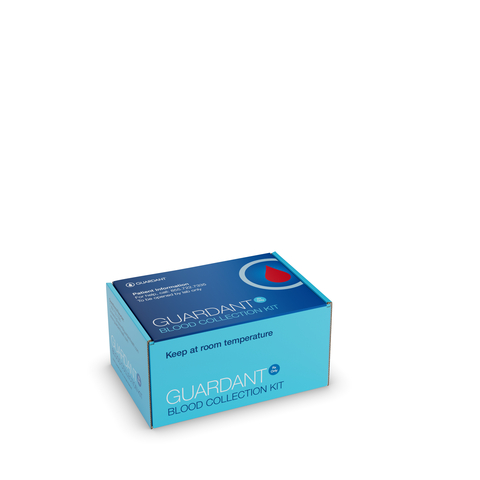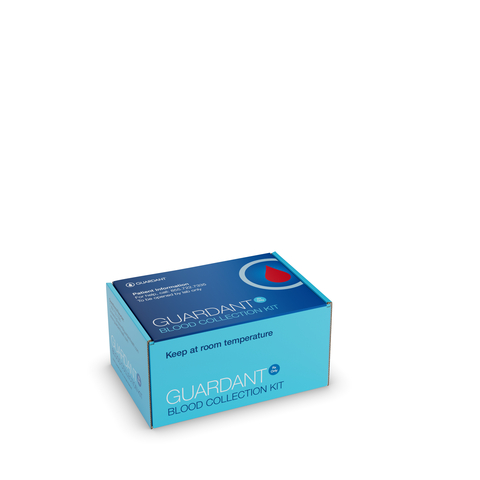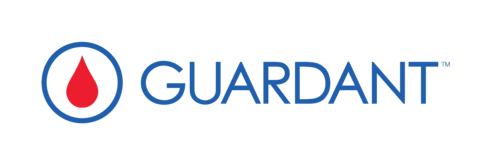PALO ALTO, Calif.--(BUSINESS WIRE)--Guardant Health, Inc. (Nasdaq: GH), a leading precision oncology company, today announced the availability of Shield™, the company’s first blood-based test for the detection of early-stage colorectal cancer (CRC). The test, which only requires patients to complete a simple blood draw, is intended for adults age 45 and older who are not up to date with recommended screening guidelines, show no symptoms, and are at average risk for CRC.
Colorectal cancer is the second-leading cause of cancer-related deaths in the U.S.1 Today, one in three adults have not completed the recommended CRC screening even though colorectal cancer is curable if caught early. Barriers associated with currently available methods, such as a colonoscopy or a stool-based test, can make the process unpleasant, time-consuming and difficult to complete.2 With a simple blood draw, the Shield test overcomes these barriers because it requires no special preparation, no sedation, no dietary changes, no extra time away from family or work, and it can be completed as part of any patient office visit.3
The clinical performance of the Shield assay was validated using a set of 309 patient samples, including 92 with CRC, 51 with advanced adenomas and 166 normal cases. CRC patient samples were accrued across six unique cohorts collected in the U.S., Canada and the EU, and samples with advanced adenoma and normal cases were collected in the U.S. Subjects were balanced by age (a mean of 64 years old) and gender. The Shield assay demonstrated 91% sensitivity (detection rate) for CRC (95% confidence interval [CI]: 84% - 95%), including 90% for Stage I, 97% for Stage II, and 86% for Stage III CRC. The assay also demonstrated 20% sensitivity for advanced adenomas (95% CI; 11% - 32%) and 92% specificity (true negative rate) in normal cases.
“The availability of the Shield test represents a major milestone in our commitment to transform cancer screening. We have developed highly sensitive technology to detect early-stage cancers with a simple blood draw,” said AmirAli Talasaz, Guardant Health co-CEO. “Colorectal cancer screening is the start of this journey. We will soon expand into multi-cancer screening, including lung, pancreas and others, where we believe cancer screening can save lives.”
Why CRC screening compliance matters
More than 75% of people who die from CRC today are not up to date with recommended screening.4 Cancer underscreening is an important factor contributing to the high cancer mortality rate in underserved populations. For example, in the area of CRC, only 59% of individuals age 50 and older who are Hispanic and 65% of individuals who are Black/African American are up to date with recommended screenings, compared to 68% of individuals who are white.5
“The value of colorectal cancer screening is well-established for individuals at average risk, age 45 and older,” said J. Leonard Lichtenfeld, MD, MACP, Chief Medical Officer, Jasper Health. “But the benefits of screening have been limited due to the suboptimal completion rates of stool tests and colonoscopy. A high-sensitivity test that can be completed with a convenient blood draw during any healthcare provider visit can help patients overcome the barriers to adherence and help healthcare professionals identify more cancers at their earliest stages, when they are most treatable.”
“Colorectal cancer is largely preventable if caught early, yet barriers to screening tests remain. It can be especially challenging for underserved populations to get screened. These barriers include lack of healthcare access, limited capacity in healthcare systems, transportation challenges, childcare, and lack of paid leave from work,” said Anjee Davis, MPPA, president of Fight Colorectal Cancer. “As the research continues to progress for blood-based tests, the availability of a test like this is a welcomed addition to the tools we can use to prevent cancer. This has the potential to improve access to screening for underserved populations and dramatically improve overall screening rates.”
How the Shield assay was developed
The Shield test detects early signs of CRC signals in the bloodstream. The assay was developed using multiple cohorts comprising 2,089 subjects with CRC, 357 with advanced adenoma and 3,757 normal subjects. The samples were collected within both prospective screening collections designed to capture the intended use population and retrospective case-control cohorts designed to enrich for subjects with CRC.
Where the Shield test is available currently
Shield is now available for eligible individuals by prescription only through healthcare professionals. This LDT (Laboratory Developed Test) is intended to be complementary to, and not a replacement for, current recommended CRC screening methods. A negative result does not rule out the presence of cancer. Patients with an abnormal blood-based screening result should be referred for a diagnostic colonoscopic evaluation.
What’s next for the Shield test
This year Guardant Health plans to share results of the ECLIPSE clinical study (NCT04136002) to demonstrate the performance of the Shield test to detect early signs of CRC in individuals ages 45-84 who are at average risk. The prospective, multi-site registrational study is one of the largest cancer screening studies of its kind, with enrollment of more than 12,750 patients from across the U.S. Subject to positive results, the study will support a premarket approval (PMA) submission to the U.S. Food and Drug Administration.
More information about the Shield test is available at bloodbasedscreening.com.
About Guardant Health
Guardant Health is a leading precision oncology company focused on helping conquer cancer globally through use of its proprietary tests, vast data sets and advanced analytics. The Guardant Health oncology platform leverages capabilities to drive commercial adoption, improve patient clinical outcomes and lower healthcare costs across all stages of the cancer care continuum. Guardant Health has commercially launched Guardant360®, Guardant360 CDx, Guardant360 TissueNext™, Guardant360 Response™, and GuardantOMNI® tests for advanced stage cancer patients, and Guardant Reveal™ for early-stage cancer patients. The Guardant Health screening portfolio, including the ShieldTM test, aims to address the needs of individuals eligible for cancer screening.
Forward-Looking Statements
This press release contains forward-looking statements within the meaning of federal securities laws, including statements regarding the potential utilities, values, benefits and advantages of Guardant Health’s liquid biopsy tests or assays, which involve risks and uncertainties that could cause the actual results to differ materially from the anticipated results and expectations expressed in these forward-looking statements. These statements are based on current expectations, forecasts and assumptions, and actual outcomes and results could differ materially from these statements due to a number of factors. These and additional risks and uncertainties that could affect Guardant Health’s financial and operating results and cause actual results to differ materially from those indicated by the forward-looking statements made in this press release include those discussed under the captions “Risk Factors” and “Management’s Discussion and Analysis of Financial Condition and Results of Operation” and elsewhere in its Annual Report on Form 10-K for the year ended December 31, 2021 and in its other reports filed with the Securities and Exchange Commission. The forward-looking statements in this press release are based on information available to Guardant Health as of the date hereof, and Guardant Health disclaims any obligation to update any forward-looking statements provided to reflect any change in its expectations or any change in events, conditions, or circumstances on which any such statement is based, except as required by law. These forward-looking statements should not be relied upon as representing Guardant Health’s views as of any date subsequent to the date of this press release.
References
- American Society of Clinical Oncology. Colorectal cancer: statistics. Cancer.net website. Updated February 2022. Accessed March 22, 2022. https://www.cancer.net/cancer-types/colorectal-cancer/statistics.
- Adler A, Geiger S, Keil A, et al. Improving compliance to colorectal cancer screening using blood and stool based tests in patients refusing screening colonoscopy in Germany. BMC Gastroenterol. 2014;14:183. doi:10.1186/1471-230X-14-183.
- Rich T, Raymond V, Lang K. Where are we today? Efforts to understand strategies and barriers to physician issuance of a recommendation for colorectal cancer screening: a systematic review. Gastroenterology. 2020;158(6 suppl 1):S-918. doi:10.1016/S0016-5085(20)32981-4.
- Doubeni CA, Fedewa SA, Levin TR, et al. Modifiable failures in the colorectal cancer screening process and their association with risk of death. Gastroenterology. 2019;156(1):63-74. doi:10.1053/j.gastro.2018.09.040.
- American Cancer Society. https://www.cancer.org/content/dam/cancer-org/research/cancer-facts-and-statistics/colorectal-cancer-facts-and-figures/colorectal-cancer-facts-and-figures-2020-2022.pdf. Accessed online February 4, 2022.






